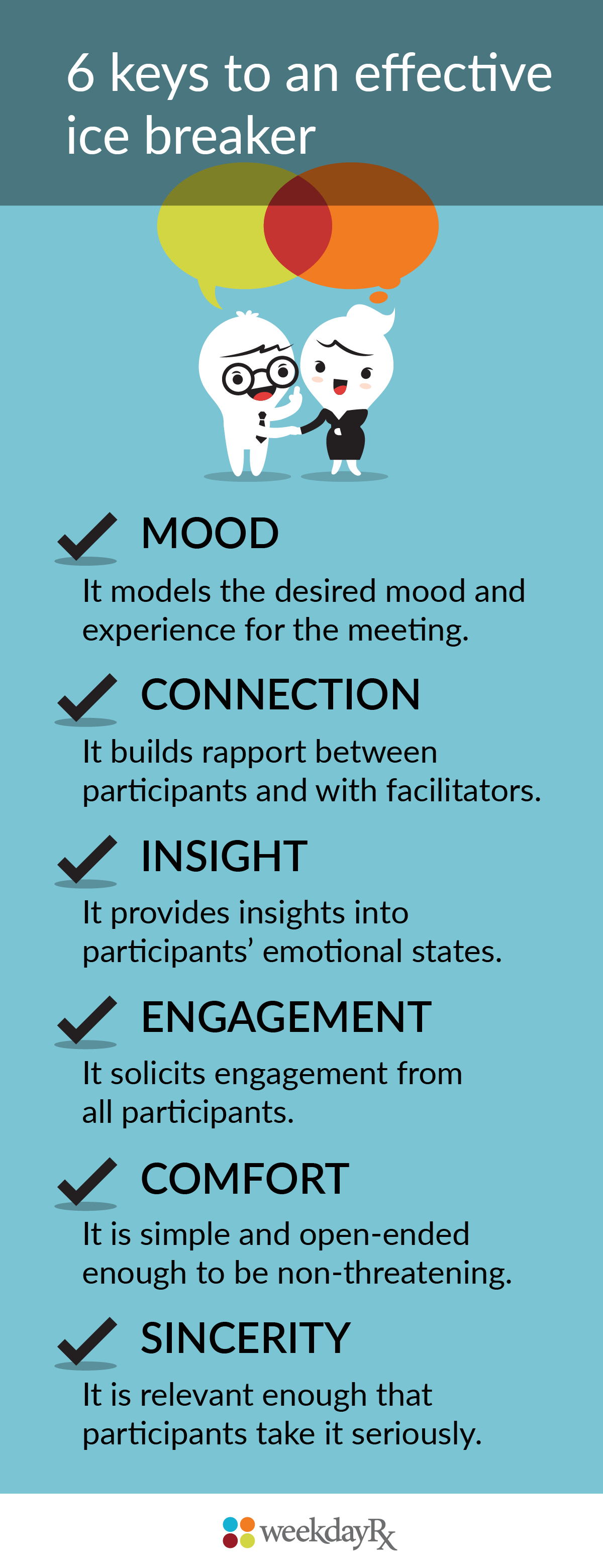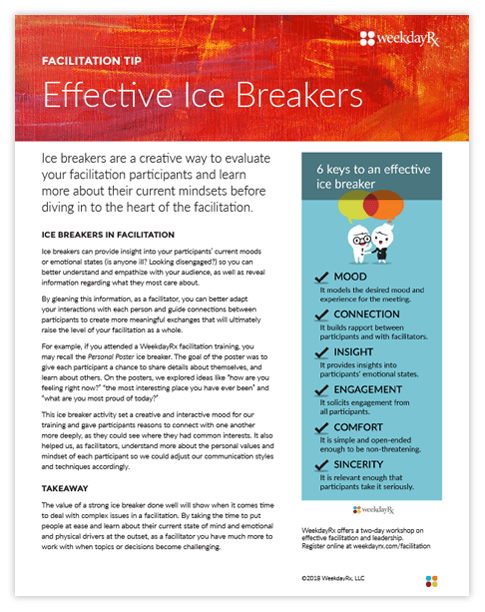Envision, Engage, Inspire
Facilitation Tip:
Effective Ice Breakers
Ice breakers in facilitation
 Ice breakers are a creative way to evaluate your facilitation participants and learn more about their current mindsets before diving in to the heart of the facilitation. They can provide insight into your participants’ current moods or emotional states (is anyone ill? Looking disengaged?) so you can better understand and empathize with your audience, as well as reveal information regarding what they most care about.
Ice breakers are a creative way to evaluate your facilitation participants and learn more about their current mindsets before diving in to the heart of the facilitation. They can provide insight into your participants’ current moods or emotional states (is anyone ill? Looking disengaged?) so you can better understand and empathize with your audience, as well as reveal information regarding what they most care about.
By gleaning this information, as a facilitator, you can better adapt your interactions with each person and guide connections between participants to create more meaningful exchanges that will ultimately raise the level of your facilitation as a whole.
For example, if you attended a WeekdayRx facilitation training, you may recall the Personal Poster ice breaker. The goal of the poster was to give each participant a chance to share details about themselves, and learn about others. On the posters, we explored ideas like “how are you feeling right now?” “the most interesting place you have ever been” and “what are you most proud of today?”
This ice breaker activity set a creative and interactive mood for our training and gave participants reasons to connect with one another more deeply, as they could see where they had common interests. It also helped us, as facilitators, understand more about the personal values and mindset of each participant so we could adjust our communication styles and techniques accordingly.
Takeaway
The value of a strong ice breaker done well will show when it comes time to deal with complex issues in a facilitation. By taking the time to put people at ease and learn about their current state of mind and emotional and physical drivers at the outset, as a facilitator you have much more to work with when topics or decisions become challenging.
Added challenge
Get together with a group of other facilitators to discuss your favorite ice breakers and how they include the six keys listed above. Then, brainstorm some new ice breakers to try out at a future facilitation session.
Download this tip [dot_recommends]
